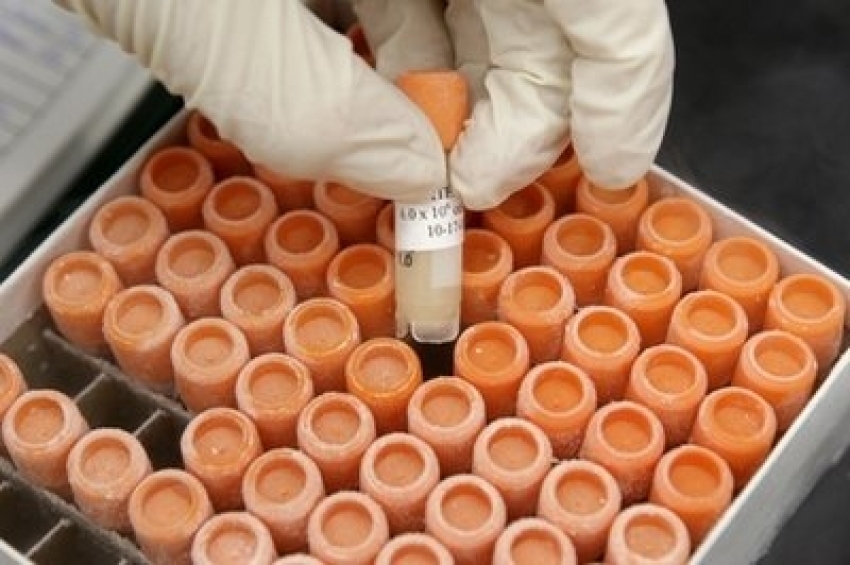Dissuading the Biomedical Community From Creating Human Embryos Is a Big Win

Fazale Rana is the Vice President of Research and Apologetics at Reasons to Believe and holds a PhD in chemistry with an emphasis in biochemistry from Ohio University. He shares with us the facts and myths regarding stem cells and stem cell research and how it impacts Christians.
What are stem cells?
Stem cells are special cells associated with certain tissues in the human body. Stem cells serve as a source of replacement cells for the cells that naturally make up those tissues. When cells in these tissues die due to disease or injury, stem cells replicate and transform, replacing the lost cells. Tissues that possess stem cells have the capacity to regenerate, such as the tissues that make up skin and blood.
Not all tissues have stem cells associated with them. For example, when nervous, cardiac, and muscle tissues lose cells, they cannot regenerate because they lack stem cells. Instead, nonfunctional scar tissue replaces once-healthy functional tissue.
What make stem cells so valuable?
Biomedical researchers hope that they can use stem cells to repair diseased and damaged tissue that otherwise could not regenerate on its own. They hope that by artificially introducing stem cells into damaged tissue, replacement cells will form, converting nonfunctional tissue into tissue with restored function.
Researchers are primarily interested in embryonic stem cells or blastomeres. Found in the early embryo, these cells possess the capacity to develop into the 200 or so cell types found in the human body.
Tell us a little about the history of the debate on using stem cells.
There are two sources of embryonic stem cells: embryos left over from in vitro fertilization and embryos produced by human cloning. To isolate embryonic stem cells, human embryos must be destroyed, raising serious moral and ethical concerns.
For over two decades, a debate has raged between advocates of embryonic stem cell research-- who see it as an important biotechnology that could provide treatments and therapies for people who suffer from a number of debilitating diseases and injuries—and pro-life advocates (which is the position I hold)—who regard human embryos as human beings, who possess full personhood.
During the debates that took place in the early to mid 2000s, several pro-lifers and Christian apologists (me included), took a positive tact. Instead, of condemning all stem cell research, we advocated for pursuit of alternative sources of stem cells other than human embryos—such as adult stem cells.
At that time, quite a few research studies demonstrated that several types of adult stem cells could behave like embryonic stem cells, under certain conditions. In the lab, researchers could coax these adult stem cells to develop into a wide range of cell types that are suitable for use in tissue-replacement therapies.
Adult stem cells can be readily isolated from adult tissues. No human life is lost in the process of isolating adult stem cells.
But, the scales tipped, once and for all, in favor of the pro-life position in 2007, when researchers discovered that embryonic-like stem cells can be generated without destroying human embryos. (These cells are called induced pluripotent stem cells (iPSCs).) These research teams produced iPSCs from adult mice skin cells called fibroblast by transferring four genes into the genome of these easily isolated cells using a retrovirus as a carrier. Researchers later showed that human skin cells undergo a similar transformation.
iPSCs can develop into all the different cell types in the human body, just like ESCs. iPSCs don't raise any ethical concerns, because they originate from adult cells, not embryos. iPSCs have some other advanatges over ESCs. For example, biomedical applications of iPSCs won't be frustrated by tissue rejection as is the case with ESCs, because the fibroblasts used to produce iPSCs can be taken from the patient's own tissue.
Still, a number of problems beleaguer iPSCs. Re-programming these cells to from fibroblasts is highly inefficient, with about a 0.1 percent success rate. Researchers are also concerned that the re-progamming to an embryonic-like state may not always be complete. Also, the use of retroviruses to transfer the genes into the fibroblast genome can potentially insert into unintended regions, causing mutations.
What is this new technology?
Recently, researchers from the Gladstone Institute of Cardiovascular Disease and the University of California, San Francisco discovered that by modifying CRSIPR/Cas-9 gene editing techniques they could transform fibroblast into iPSCs by targeting a single gene. This new methodology is cleaner, and potentially more efficient, than the methods developed in 2007. It is also much less likely to suffer from genome insertion events. This new approach also provides important insights about how the reprogramming process happens.
In short, this advance moves us one step closer to bringing this technology into a clinical setting.
Are there any downsides?
If researchers can learn how to overcome some technical hurdles, such as minimizing genome insertion events and developing a better grasp of how the re-programming process happens, in theory, there really aren't any biomedical or ethical downsides inherent to the use of iPSCs for cell and tissue replacement therapies.
How is this a huge leap toward reclaiming the sanctity of life?
Anything that can dissuade the biomedical community from creating and destroying human embryos is a big win for the pro-life movement. But, it is equally exciting and important for those of us who are concerned about the dignity and sanctity of human life to have medical treatments that can alleviate human suffering. iPSCs technologies promise to do both. It's like having your cake and eating it, too. It is a win for both sides of the debate.
The prospects of using iPSCs as a ethically-acceptable source of stem cells serves as a wonderful example of what can happen when Christians are willing to thoughtfully engage our culture, using an approach that seeks to build bridges and create win-win opportunities. Instead of condemning stem cell research and demonizing biomedical workers in that field, many pro-lifers and Christian Apologists (including me) advocated for alternatives to ESCs.This advocacy served as part of the motivation for biomedical researchers to develop iPSCs. Even though many of the researchers working in this field don't hold to a Christian worldview, they still are willing to seek out viable alternatives to ESCs, because they want to side step the moral and ethical issues that arise when using human embryos.
Fazale Rana is the author of several groundbreaking books, including Who Was Adam, Creating Life in the Lab, The Cell's Design and Dinosaur Blood and the Age of the Earth. He holds a PhD in chemistry with an emphasis in biochemistry from Ohio University. He shares with us the facts and myths regarding stem cells and stem cell research and how it impacts Christians.



























